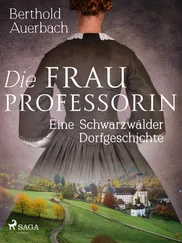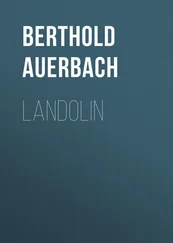Berthold Auerbach - Waldfried - A Novel
Здесь есть возможность читать онлайн «Berthold Auerbach - Waldfried - A Novel» — ознакомительный отрывок электронной книги совершенно бесплатно, а после прочтения отрывка купить полную версию. В некоторых случаях можно слушать аудио, скачать через торрент в формате fb2 и присутствует краткое содержание. ISBN: , Жанр: foreign_antique, foreign_prose, на английском языке. Описание произведения, (предисловие) а так же отзывы посетителей доступны на портале библиотеки ЛибКат.
- Название:Waldfried: A Novel
- Автор:
- Жанр:
- Год:неизвестен
- ISBN:http://www.gutenberg.org/ebooks/32446
- Рейтинг книги:3 / 5. Голосов: 1
-
Избранное:Добавить в избранное
- Отзывы:
-
Ваша оценка:
- 60
- 1
- 2
- 3
- 4
- 5
Waldfried: A Novel: краткое содержание, описание и аннотация
Предлагаем к чтению аннотацию, описание, краткое содержание или предисловие (зависит от того, что написал сам автор книги «Waldfried: A Novel»). Если вы не нашли необходимую информацию о книге — напишите в комментариях, мы постараемся отыскать её.
Waldfried: A Novel — читать онлайн ознакомительный отрывок
Ниже представлен текст книги, разбитый по страницам. Система сохранения места последней прочитанной страницы, позволяет с удобством читать онлайн бесплатно книгу «Waldfried: A Novel», без необходимости каждый раз заново искать на чём Вы остановились. Поставьте закладку, и сможете в любой момент перейти на страницу, на которой закончили чтение.
Интервал:
Закладка:
My wife had learned of Funk's attempt to injure us by dragging the child's name into publicity. Perhaps the news had been carried even further; for a letter reached us from my daughter, the pastor's wife, in which she informed us that the illness of her husband made such demands upon her time that she required an assistant about the house, and desired us to send Martella to her. She added that her husband joined her in this wish, because it seemed improper that Martella should remain in our house any longer. My wife was not unwilling to send Martella to her for a while; but I insisted that she should stay with us in spite of all idle talk.
About that time we received letters from the major and from Richard, both of whom wrote without the other's knowledge, and to the effect that Prussia's proposal to the German Diet might lead to a conflict, the consequences of which it was impossible to foretell. Thus public and private affairs kept us in unusual excitement, when an unexpected event claimed our attention.
A rumor had long been current in our family that we had relatives of high rank living in Vienna. Up to the year 1805, our village and the whole district had belonged to Austria. All of the more ambitious and talented among our people had been drawn to Vienna, either by their own desire to advance themselves, or by the inducements the government held out to them; for it was the constant aim of Austria to gain the attachment of the landed interests.
At the beginning of the last century, an uncle of my father had moved to the Imperial city, where he attained a high position. He had embraced the Catholic religion, and had been ennobled. Ernst, who always called that branch of the family "the root brood," had long cherished the plan of hunting up our relatives, in the hope of thus finding a better opening for himself.
Towards spring we received a visit from our neighbor, Baron Arven. He was accompanied by a young bridal couple. He introduced the husband, who was an officer at the garrison of Mayence, as a relative of mine. The wife belonged to the family of the Baroness Arven, and was from Bohemia. They seemed sociable and charming people, and both sides were inclined to make friends with each other, but without success. Our thoughts and feelings were pitched in different keys.
The young couple left us in order to repair to the capital. On their departure, I gave them a letter to Bertha, and the Major. They wrote to me in the kindest manner, and remarked that they would be pleased if Ernst could assume the charge of the forests on their estate in Moravia.
CHAPTER XX
Spring had come, and the air was filled with the resinous odor of the pines. I was sitting by the open window, and reading in a newspaper that Bismarck had asked the Diet for a constituent national assembly, to be voted for directly by the people. Could it be possible? I took up the country journals: they reviled this proposal, and could not conceal their fear that the most powerful weapon of the revolutionary party had been destroyed.
While I was sitting there, buried in thought, I heard a rider rapidly approaching. It was Ernst. He hurriedly greeted us, and showed us an order recalling him to his regiment.
Martella cried out aloud. Ernst pacified her. He told us that he was no longer a subject of this country. He had given notice of his intention to emigrate, and that would protect him. It was spring-time, and the best season of the year to go forth into the wide world. I could only tell him that I doubted whether he would be allowed to leave the confederation.
"Confederation!" he exclaimed; "what a glorious name!"
He gave me a look that I shall, alas! never forget. He seemed to be collecting his senses, and as if struggling with his thoughts, and then said: "As far as I am concerned, my life is of no consequence to me. But, father, there will be war, in which what the books call Germans will be fighting against Germans. Have you raised me for this? Is this all that you are in the world for-that your son should perish, or even conquer, in a war between brethren? Either issue is equally disgraceful. I do not know what I would not rather do than take part in that."
I endeavored to pacify Ernst, and told him that these were diplomatic quarrels, that would not lead so far after all. I could not conceive of the possibility of war. However, I consented to Ernst's request to accompany him to the borough town, in order to confer with the kreis-director in regard to the steps that were necessary. I sincerely hoped to obtain further particulars there, and felt that all would again be peacefully arranged.
My wife had sent for Joseph and had asked him to accompany us, for she saw how fearfully excited Ernst was, and desired us to have a mediator with us. She judged wisely.
"I shall return to-morrow," said Ernst to Martella, when all was ready for our departure.
"And if you do not return to-morrow," she answered, "and even if you must go to war at once, nothing will happen to you. You are the cleverest of all; and if you care to become a major, do so; and I shall learn how to be a major's wife-for I can learn anything."
She was wondrously cheerful; she seemed to have vanquished her fears, and thus, both for herself and Ernst, lightened the pain of parting.
Joseph informed me that Funk was everywhere joyously proclaiming that now at last the crash must come, and that proud Prussia with its Junkers would be cut to pieces, or, to use his own words, demolished. Ernst beat the bays so unmercifully and drove so furiously, that I ordered him to halt, and insisted on Joseph's taking the reins. Ernst, in a sullen mood, seated himself beside me.
In the valley we a saw lumber wagon halting on the road, and from afar recognized the horses as Joseph's.
Carl, a servant of Joseph's, and son to the spinner who lived up on the rock, was surrounded by a group of raftsmen, woodsmen, and teamsters, who were all gesticulating in the wildest manner.
We halted as soon as we reached the team. Carl, a handsome, light-haired fellow, with a cheerful face and good-natured eyes, came up to us and told us that this would be his last load; he had been summoned as a conscript, and would have to leave that very evening and walk all night, in order to reach the barracks in time.
The old meadow farmer, who had joined the crowd exclaimed, "Yes, Napoleon is master. When he fiddles, Prussia and Austria must dance as he chooses, and the small folk will soon follow suit. Yes, there is a Napoleon in the world again. I knew the old one."
We did not think it necessary to answer the man. While Joseph was giving his servant money to use by the way, others approached and declared that they, too, had been conscripted, and requested us to tell them why there was war.
"You simple rogues," cried out Ernst, "that is none of your business! If you didn't wish it, there could be no war. You are fools, fearful fools, if you obey the conscription!"
I snatched the whip from Joseph's hand, and beat the horses furiously while I called out to the crowd:
"He was only joking!"
Joseph assumed the task of bringing Ernst to reason. He declared that if I had not been present, he would have written the answer that Ernst deserved in his face.
"Do so, you trusty Teuton!" replied Ernst.
Speedily controlling himself, Joseph added, "Forgive me; but you are most exasperating. How can you bear to drag yourself and your father to the very brink of ruin with such idle speeches? You are unworthy of such a father."
"Or of such a Fatherland," answered Ernst.
I felt so oppressed that I could hardly breathe.
We rode on for a little while, and at last Ernst inquired, in a submissive tone, "Will you permit me to smoke a cigar?" I nodded approval, and from that time until we reached the town, not a word was uttered.
Читать дальшеИнтервал:
Закладка:
Похожие книги на «Waldfried: A Novel»
Представляем Вашему вниманию похожие книги на «Waldfried: A Novel» списком для выбора. Мы отобрали схожую по названию и смыслу литературу в надежде предоставить читателям больше вариантов отыскать новые, интересные, ещё непрочитанные произведения.
Обсуждение, отзывы о книге «Waldfried: A Novel» и просто собственные мнения читателей. Оставьте ваши комментарии, напишите, что Вы думаете о произведении, его смысле или главных героях. Укажите что конкретно понравилось, а что нет, и почему Вы так считаете.












